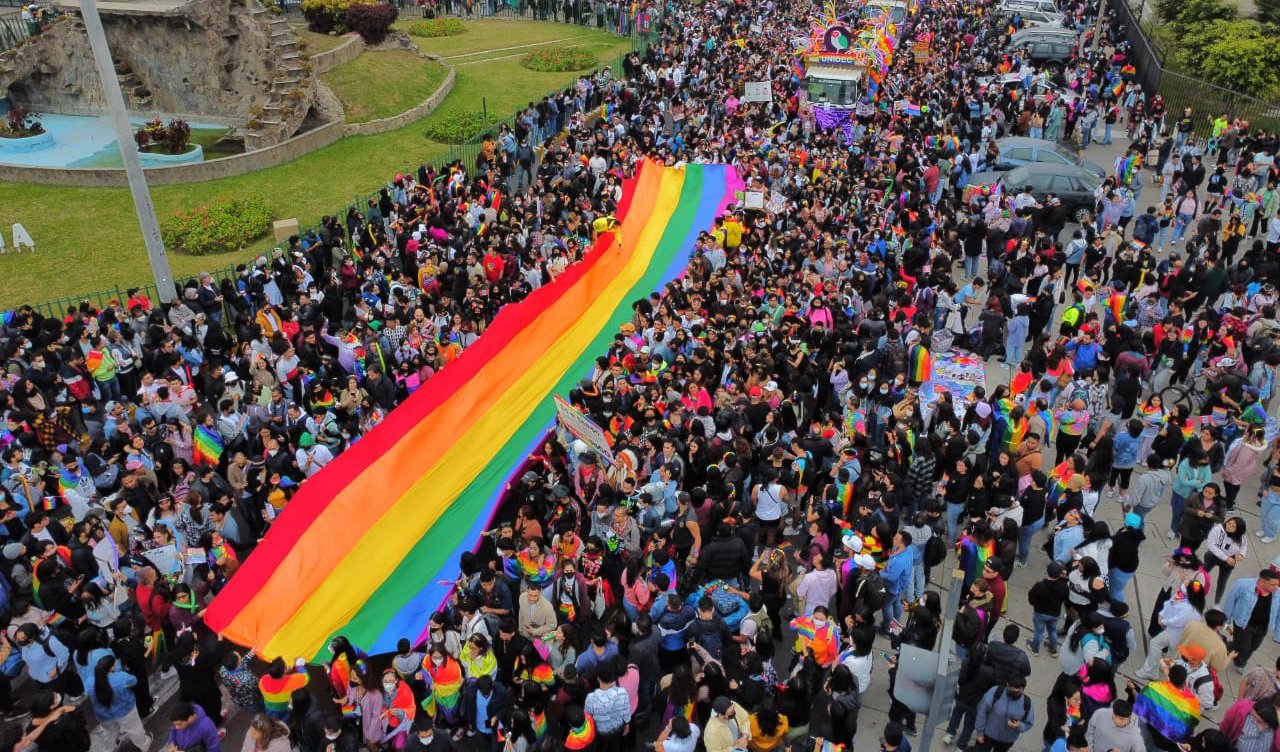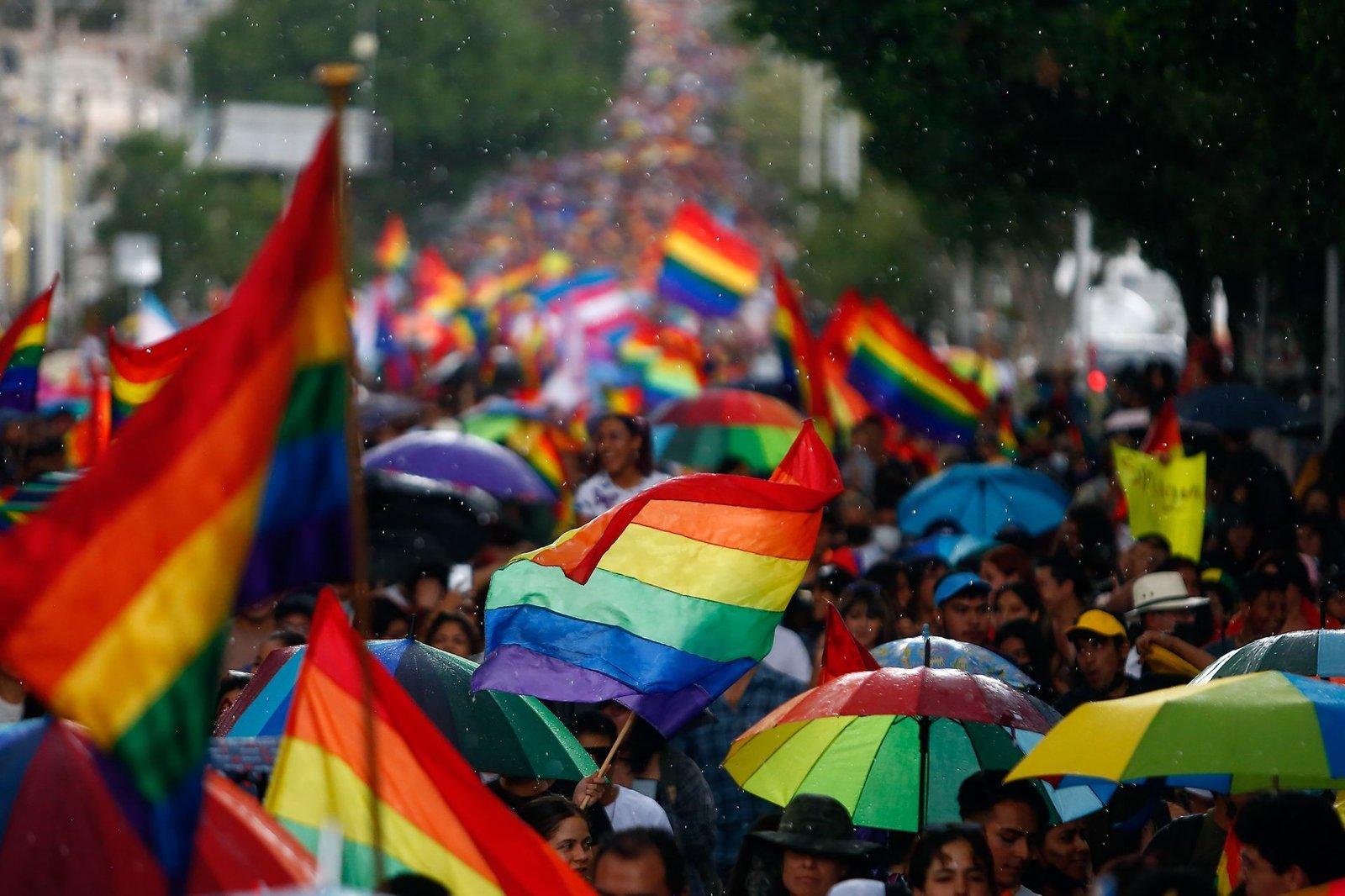A Celebration of Pride: Analyzing the Current Situation and Advocating for Rights in the LGBTQIA+ Community

This month, we have been celebrating Pride, a way to manifest and express our love towards the identities of a dissent collective that is often marginalized and segregated. At this moment, we must commemorate the history of the LGBTQIA+ community and also help with respect and empathy for others to feel safe coming out and being themselves as continuous problems still arise threatening them.
Currently, we still face significant issues as of June 2024:
• Younger people are more likely to identify as LGBT+. 17% of Generation Z identify as part of the community.
• Less than one in two support companies actively promoting equality for LGBT+ people. Support has dipped since 2021, while 19% now oppose this marketing move.
• A global country average of 66% say transgender people face a greater amount of discrimination in society today.
Worldwide Progress and Challenges
Belgium: Belgium was the second country to allow same-sex marriages in 2003. It is also ranked as one of the best European countries in terms of the legal, political, and human rights which it grants its LGBTI citizens and residents. In 2023, they were awarded by Rainbow Europe.
Colombia: In 2011, Colombia’s Congress passed a law banning discrimination based on sexual orientation, and on April 28, 2016, the Constitutional Court legalized same-sex marriage. Homosexuals are allowed to marry, adopt, and openly join the armed forces, and the law makes no distinction regarding sexual relations between people of the same sex.
Philippines: The vast majority of Filipinos – 73% – declared that “society should accept homosexuality”. Although legislation supporting same-sex marriage in the Philippines has been proposed several times in the Philippine legislature, none has been passed. In a survey of 39 countries (only 17 of which had a majority accepting homosexuality), the Philippines has been ranked one of the most gay-friendly nations in the world and is the most gay-friendly in Asia.

The Situation in Peru
In 2022, during the bicentenary of their independence, a bill was presented to the authorities: Nº 644-2021-2022-CJYDDHH/CR. This bill aimed to modify civil regulations and establish equal marriage between two people regardless of sex, in accordance with the constitutional principle of equality and non-discrimination. Despite the efforts, it was ruled out. Current initiatives include:
The Ley Trans Ya Campaign: From Amnesty International, focusing on helping transgender individuals in Peru who often face threats, violence, and discrimination due to inaccurate identification documents. Obtaining proper documentation involves a lengthy legal process with significant costs. The campaign advocates for timely recognition of trans people’s right to identity without resorting to court proceedings.
Más Igualdad Perú: A feminist association in Peru that advocates for the visibility and rights of LGBTI+ individuals and their families. Comprised of bisexual, lesbian, gay, and non-binary activists, they focus on political engagement, research, and education. Their strategic directions include mental health research, political advocacy, communication campaigns, and fighting discrimination.
Recent Developments: Recently, in Peru, Supreme Decree 009-2024 SA included various LGBTQIA+ identities in the list of mental illnesses covered by the Essential Health Insurance Program, based on an outdated International Classification of Diseases (ICD-10). This decision implies that having a certain mental divergence or identifying differently from the normative can be grounds for considering someone mentally ill. After much debate, a recent resolution has reestablished the terms and frameworks defining these identities, leading to the cessation of using outdated terms that do not accurately represent the Peruvian queer population.
However, the fight for the community’s rights is far from over. According to a 2023 report by the Peruvian NGO “Promsex,” 76% of LGBTQIA+ individuals in Peru have experienced some form of violence or discrimination based on their sexual orientation or gender identity. Despite progress, LGBTQIA+ individuals in Peru continue to face legal challenges; as of 2023, only 7% of LGBTQIA+ people reported feeling fully protected by the law, highlighting persistent gaps in legal protections against discrimination.
Moving Forward
As we continue to celebrate Pride, it is essential to recognize both the progress and the ongoing struggles of the LGBTQIA+ community. Advocacy, education, and support are crucial in ensuring that all individuals feel safe and accepted. By working together, Peruvian Universities aims to help creating a world where everyone is free to be themselves without fear of discrimination or prejudice.
